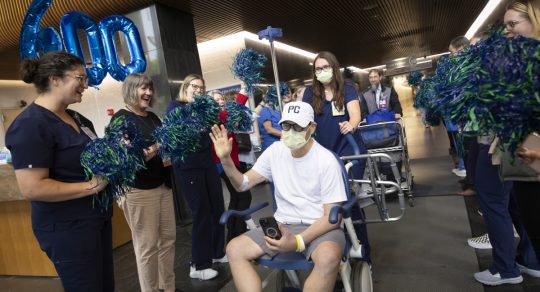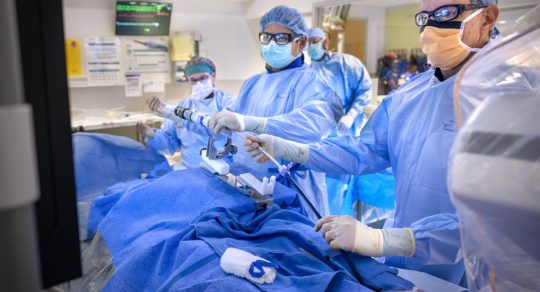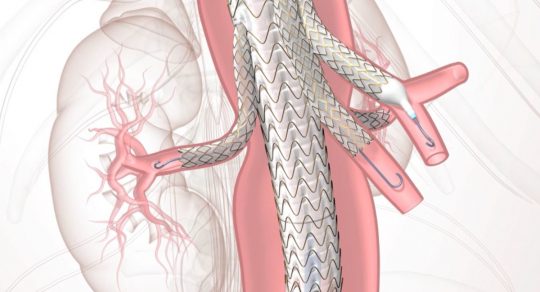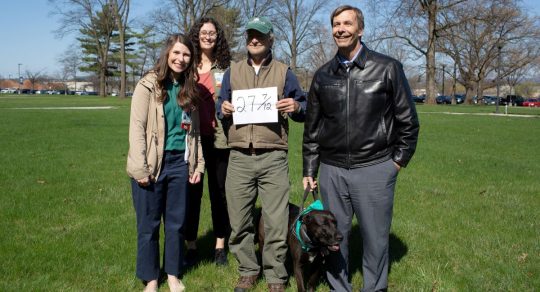Fellowship
Interventional Cardiology
The Interventional Cardiology Fellowship at Penn State Health Milton S. Hershey Medical Center is a one-year, ACGME-accredited program that admits one fellow per year.
Explore More
The Interventional Cardiology Fellowship provides fellows with state-of-the-art training. To be a candidate for this ACGME-approved training position, the qualified candidate will be completing (or already has completed) a three-year ACGME-accredited cardiovascular disease fellowship, as well as a three-year ACGME-accredited internal medicine residency. It is expected that the candidate be board-certified in internal medicine and be board-eligible for cardiovascular disease medicine by the start of the training program.
The program is designed to meet all of the requirements for board eligibility in Interventional Cardiology and provides level 3 COCATS training.
The interventional cardiology fellow will be provided with an opportunity to acquire knowledge of the indications, contraindications, risks, limitations and complications associated with catheter-based interventions, and will perform a minimum of 250 coronary interventions during training.

Program Overview
The program will provide instruction and opportunities to acquire knowledge in the use of IVUS, Excimer laser, cutting-balloon, PTCRA, intracoronary stents, distal protection devices, pressure and Doppler flow wires. In addition, the fellow will participate in ongoing clinical trials studying the effects of pharmacological therapies and new interventional devices.
Penn State Heart and Vascular Institute has five attending interventionalists. The fellow will work in tandem with an attending interventionalist in the cath lab and clinic.
Learn More about the Fellowship
The Penn State Interventional Cardiology fellowship mission is to provide the highest quality, state-of-the-art training in the field of interventional cardiology, enabling the fellows to develop and demonstrate competency in basic and clinical knowledge, procedural skills, clinical judgment, professionalism, and interpersonal skills.
The training program emphasizes a complete commitment to patient care, beginning with a comprehensive assessment in the inpatient and outpatient setting and involving the care of patients across a broad spectrum of disorders, including coronary artery, peripheral and structural heart disease.
Thank you for your interest in our program. At this time, we have filled our 2026-2027 position and will not be accepting applications during the 2025 recruitment season.
Current Fellows

PGY-7 Fellow, Interventional Cardiology Fellowship
Leadership

Assistant Professor, Medicine


Program Coordinator, Cardiovascular Disease Fellowship, Clinical Cardiac Electrophysiology Fellowship and Interventional Cardiology Fellowship, Medicine

Administrative Associate, Cardiovascular Disease Fellowship, Clinical Cardiac Electrophysiology Fellowship and Interventional Cardiology Fellowship, Medicine
Additional Faculty
Supporting Your Training
Contact Us
Phone: 717-531-6746
Email: asmith5@pennstatehealth.psu.edu
Mailing Address
Penn State Heart and Vascular Institute
Interventional Cardiology Fellowship Program
500 University Drive
P.O. Box 850, MC H047
Hershey, PA 17033





